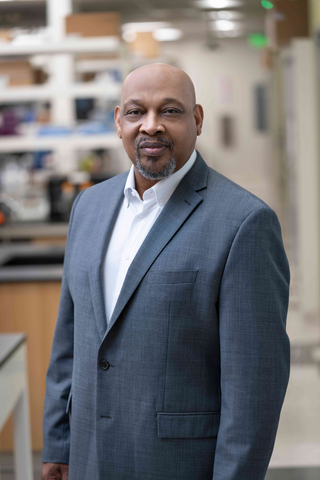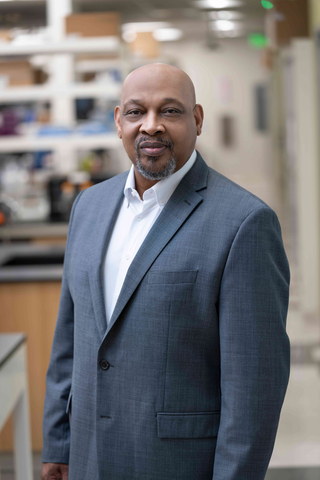LOS ANGELES--(BUSINESS WIRE)--John D. Carpten, Ph.D., chief scientific officer at City of Hope®, one of the largest and most advanced cancer research and treatment organizations in the U.S., has been named a top diversity leader in U.S. health care by Modern Healthcare magazine. Dr. Carpten, a renowned genome scientist, is recognized for his leadership in cancer research and pioneering work in identifying genomic factors contributing to cancer disparities among individuals from underrepresented groups, including groundbreaking research on prostate cancer in African Americans.
Modern Healthcare’s Diversity Leaders honors influential U.S. health care executives for their commitment to improving equity and inclusion at their organization and in the overall industry. Dr. Carpten is cited for his record of driving diversity in scientific studies and breakthrough translational research, which is unlocking the role of biology in inequitable cancer incidence experienced by underrepresented populations. This includes his work in developing the African American Hereditary Prostate Cancer study network and authorship of the first paper using data from the network’s study which identified regions of the human genome likely linked to hereditary prostate cancer disparities. He has also played a key role in studies examining the higher incidence rates of breast cancer, colorectal cancer, multiple myeloma and pediatric cancers in underserved communities.
Dr. Carpten is additionally noted for his leadership in influencing the national cancer research agenda. Among his many accolades, he was appointed to the National Cancer Advisory Board by President Joe Biden in 2022 and elected to the National Academy of Medicine in 2023, one of the highest honors in health and medicine.
Considered one of the world’s leading genomic scientists, Dr. Carpten’s research extends into multiple disciplines within the field, including germline genetics for disease risk and predisposition, somatic cancer genomics, health disparities research, cell biology, functional genomics and precision medicine. Prior to joining City of Hope, he was professor and chair of the Department of Translational Genomics at the Keck School of Medicine of USC and associate director of the cancer center. Prior to USC, he served as director of the Division of Integrated Cancer Genomics, and later, deputy director of Basic Research at Translational Genomics Research Institute, now a part of City of Hope.
“I am humbled that Modern Healthcare has now included me among this group of national health care executives who are breaking barriers and improving access to care as well as access to leading-edge scientific research. We must continue to eliminate cancer inequities and improve access to clinical trials so that all patients, regardless of where they live, can receive lifesaving cancer care that considers the whole person and their quality of life,” said Dr. Carpten, who serves as director of the National Cancer Institute-designated City of Hope comprehensive cancer center and director of Beckman Research Institute of City of Hope. He is also the Irell & Manella Cancer Center Director’s Distinguished Chair and the Morgan & Helen Chu Director’s Chair of the Beckman Research Institute.
About City of Hope
City of Hope's mission is to make hope a reality for all touched by cancer and diabetes. Founded in 1913, City of Hope has grown into one of the largest and most advanced cancer research and treatment organizations in the U.S., and one of the leading research centers for diabetes and other life-threatening illnesses. City of Hope research has been the basis for numerous breakthrough cancer medicines, as well as human synthetic insulin and monoclonal antibodies. With an independent, National Cancer Institute-designated comprehensive cancer center that is ranked top 5 in the nation for cancer care by U.S. News & World Report at its core, City of Hope’s uniquely integrated model spans cancer care, research and development, academics and training, and a broad philanthropy program that powers its work. City of Hope’s growing national system includes its Los Angeles campus, a network of clinical care locations across Southern California, a new cancer center in Orange County, California, and cancer treatment centers and outpatient facilities in the Atlanta, Chicago and Phoenix areas. City of Hope’s affiliated group of organizations includes Translational Genomics Research Institute and AccessHopeTM. For more information about City of Hope, follow us on Facebook, X, YouTube, Instagram and LinkedIn.




